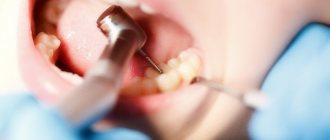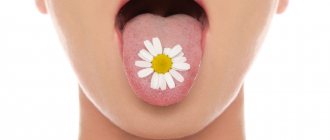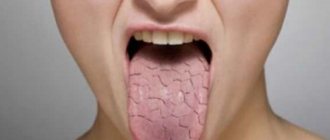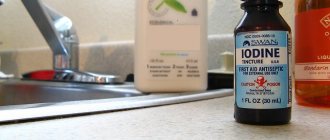Bad breath and diabetes
Sweet, fruity or with subtle notes of pear. This is not a description of dessert wine, but instead, these words are often used to describe the bad breath that is associated with diabetes.
Your breath has an interesting ability to reveal clues to your overall health. Just a fruity smell can be a sign of diabetes, and an ammonia smell is associated with kidney disease. Likewise, a very unpleasant fruity smell may be a sign of anorexia. Other diseases such as asthma, cystic fibrosis, lung cancer and liver disease can also cause different odors.
Bad breath, also called halitosis, is said to be something doctors may even be able to use to determine diabetes. Recently, researchers have discovered that infrared breath analyzers can be effective in detecting. Do you have pre-diabetes or early stage diabetes? In Western New England, the university tests with a breathalyzer that measures blood glucose levels.
Find out why bad breath may accompany diabetes and find out what you can do.
A patient who has diabetes describes experiencing extreme thirst and bad breath.
Causes of bad breath
The occurrence of bad breath can be due to many reasons. They are all grouped as follows:
- violation of oral hygiene rules,
- pathologies of the oral cavity,
- diseases of the gastrointestinal tract,
- metabolic disorders.
It is the latter group that includes diabetes mellitus. In this case, the nosology can cause bad breath due to its pathologies. Diabetes mellitus contributes to a number of diseases of the teeth and surrounding soft tissues.
Truly “diabetic” breath odor is associated with metabolic disorders. They always underlie pathology. As long as the body (itself or with the help of therapy) manages to compensate for these disorders, there is no specific smell from the mouth.
In case of diabetes mellitus (at the stage of incomplete or complete decompensation), the smell of acetone is felt from the patient’s mouth. It is due to the fact that the salivary and bronchial glands can partially remove metabolic products. During decompensation of the disease, acetone (a product of energy production by cells as a result of the lack of glucose) is formed in the blood hundreds and thousands of times more than normal. Naturally, the kidneys do not have time to cope with such amounts.
Acetone is the collective name for ketone bodies formed during decompensation of diabetes mellitus. These organic compounds have significant volatility (it is higher than that of alcohol and comparable to gasoline). As a result, with each exhalation of the patient, a huge number of molecules of ketone bodies enter the atmosphere. They also easily dissolve on the nasal mucosa of others. It is for this reason that the smell of acetone from the mouth is noticeable during decompensation of diabetes.
Causes of bad breath: diabetes
Diabetes-related bad breath has two main causes: periodontal disease and high levels of ketones in the blood.
Periodontium
Diabetes and periodontitis are like a double-edged sword. Although diabetes can lead to periodontal disease, these diseases can also create problems for people with diabetes. About one third of people with diabetes also experience periodontal disease. Heart disease and stroke, which can occur as complications of diabetes, are also associated with periodontal disease.
Diabetes can reduce blood flow throughout the body, including to the gums. If your gums and teeth do not receive enough blood, they can become weak and prone to infection. Diabetes increases glucose levels in the mouth, promoting the growth of bacteria, infections and bad odor. When your blood sugar is high, it makes it difficult for the body to fight infections, which makes healing your gums difficult.
Periodontal disease, also called gum disease, includes gingivitis, mild periodontitis and advanced periodontitis. In these diseases, bacteria invade the tissue and bone that support the teeth. This can lead to inflammation, which in turn can affect metabolism and increase blood sugar levels, making the condition worse.
If you have periodontal disease, it may be more severe and take longer to heal than in a person without diabetes.
Causes of bad breath: periodontitis, which also includes :
- red or tender gums,
- bleeding gums,
- sensitive teeth,
- receding gums.
Ketones
When your body can't produce insulin, your cells don't get glucose and they need fuel. To compensate, your body switches to plan B: burning fat. Burning fat instead of sugar produces ketones, which accumulate in the blood and urine. Ketones can also be produced when you fast or are on a high protein, low carb diet.
High levels of ketones often cause bad breath. One of the ketones, acetone (also a chemical found in nail polish), apply nail polish and it smells like your breath.
When ketones rise to dangerous levels, you are at risk of a dangerous condition called diabetic ketoacidosis (DKA). Symptoms of DKA include:
- sweet and fruity smell on breath,
- urinating more frequently than usual
- abdominal pain, nausea or vomiting,
- high blood glucose levels,
- shortness of breath or difficulty breathing,
- confusion.
This is a dangerous condition, mainly for people with type 1 diabetes whose blood flow is uncontrolled. If you have these symptoms, seek medical help immediately.
Why does diabetes cause bad breath?
Odor from the mouth of a diabetic can occur for a variety of reasons. The main one is a lack of essential carbohydrates, because the body is not able to produce insulin on its own. As a result, carbohydrates are simply not digested. It is worth considering each reason in more detail.
Ketoacidosis
Ketoacidosis is the most common underlying cause of bad breath in both type 1 and type 2 diabetes. It resembles the smell of acetone, used as nail polish remover. Why does this particular smell appear? It turns out that it is formed due to excessive levels of glucose in the blood. Of course, this substance is necessary for the normal functioning of the body, but not in such large quantities. To suppress it, a hormone is needed - insulin, which is produced by the pancreas. In diabetics, the cells responsible for the production of this hormone die. Therefore, the body tries to utilize sugar on its own.
This process causes the formation of an acetone odor, which means an increase in the content of ketone bodies. The consequence may be intoxication of the entire body. This usually happens with type 1 diabetes.
But in type 2 diabetes, the cause of an increase in ketone bodies can be a simple violation of the diet. If a diabetic consumes foods with protein and lipid compounds, this leads to oxidative processes. The fact is that the diabetic’s body cannot break down lipids, and therefore toxic compounds are formed. Also, the acetone smell appears with insufficient carbohydrate consumption. But even with an excess of these substances, the same reaction occurs.
The symptoms of ketoacidosis manifest themselves differently, depending on the severity of the disease. Therefore, in addition to the smell of acetone, a patient with diabetes notices other symptoms:
- a mild degree is manifested by nausea, fatigue and nervousness;
- medium degree – dry skin, constant feeling of thirst, pain and chills.
Due to the anatomical structure of the nasopharynx, a diabetic cannot feel the uncomfortable odor from his mouth, but it can be clearly heard by people around him.
Acetonemic syndrome
Acetonemic syndrome often occurs in childhood and has nothing to do with diabetes. However, it also occurs with this pathology, but only when the patient uses too many drugs aimed at reducing the amount of glucose. This uncontrolled approach to treatment leads to a lack of sugar in the blood fluid, which causes the formation of a toxic compound. The smell is reminiscent of rotten apples and other fruits. The main symptoms are nausea and vomiting.
Oral diseases
In diabetes, a common etiology of bad breath is periodontitis and other diseases of the gums and teeth. This is due to the fact that diabetes causes impaired blood supply and weakened immunity, which leads to infection of the oral cavity. If the glucose level is increased in the blood, it means that it is also increased in the mouth, and this is the most favorable environment for the proliferation of pathogenic microorganisms.
Other reasons
- Indigestion and other diseases of the gastrointestinal tract. In this case, the diabetic’s breath smells like rot. Especially often putrefactive breath is observed with a diverticulum, that is, a bag-like protrusion of the walls of the esophagus. This occurs against the background of food residues in the gastrointestinal tract, which are not fully digested and begin to rot.
- The breath stinks of rotten food due to disruption of the functional activity of the liver. It is known that this organ filters out toxic deposits, but when the liver is not functioning properly, intoxication occurs.
- Quite often in diabetes, the smell of the mouth changes while taking medications. But the doctor should warn about this.
- Infection of the body, kidney disease, poisoning and congenital pathologies in which there is a lack of enzymes for normal digestion. This is also a factor in a diabetic's bad-smelling breath.
If a diabetic has an unpleasant, persistent breath odor, you should immediately contact the clinic. Timely treatment eliminates unpleasant consequences and complications.
what can you do
A common complication of diabetes mellitus is neuropathy, cardiovascular diseases, periodontitis and others. However, you can take steps to prevent gum disease. Take control of yourself and implement daily tips such as:
- Brush your teeth at least twice a day and floss daily.
- Don't forget to clean your tongue, the main carrier of smelly bacteria.
- Drink water and keep your mouth moist.
- Use mints or chewing gum to stimulate salivation.
- Visit your dentist regularly to follow treatment recommendations, and make sure your dentist knows you have diabetes.
- Your doctor or dentist may prescribe medications to stimulate saliva production.
- If you wear dentures, make sure they fit well and remove them at night.
- Do not smoke.
You will find help if you need it
If you have bad breath, you are not alone. About 65 million Americans have bad breath during their lifetime.
Today you learned the causes of bad breath, which may be a sign of something serious. If you have diabetes, it's important to be aware of what your breath may be telling you. Your understanding can save you from modern gum disease.
Results
Diabetes mellitus is characterized by a number of specific symptoms, one of which is bad breath, otherwise known as halitosis. Diabetic halitosis is usually acetone. This is due to the development of ketoacidosis in diabetic patients - the presence of acetone (ketone) bodies in the blood.
Ketones are formed due to excess amounts of unspent glucose and toxic products of its breakdown. They enter the lungs with the blood, causing a person’s breath to become stale. And also with the bloodstream, acetone bodies enter the kidneys and then into the urine, which acquires a pungent odor of ammonia.
Severe ketoacidosis poses a risk of developing a diabetic crisis, in which the body is subjected to severe intoxication. This condition can threaten a diabetic with ketoacidosis coma. There are other diseases that provoke antipathetic amber. To diagnose them, it is necessary to undergo a medical examination.
To eliminate severe halitosis, the systematic use of mouth rinses and sprays, and herbal decoctions is recommended. It is necessary to visit the dentist regularly and monitor the health of your teeth and gums.
Bad breath in diabetes: causes and treatment for diabetics
The appearance of bad breath is not only an aesthetic problem; it can arise due to problems in the body, which need to be addressed first.
The reasons can be completely different - it could be improper oral care, lack of saliva production, or a disease of the internal organs.
Thus, with stomach diseases, a sour smell may be felt, and with intestinal diseases, a putrid odor may be felt.
In the old days, healers did not know modern methods of identifying illness. Therefore, signs in the patient such as bad breath, changes in skin color, rash formation and other symptoms have always been used to diagnose the disease.
And today, despite the abundance of scientific advances and medical technology, doctors still use old methods of identifying the disease.
The formation of some signs is a kind of alarm signal, which indicates the need to consult a doctor for medical help. One of the serious symptoms is the smell of acetone coming from the mouth. This indicates that pathological changes are occurring in the patient’s body.
However, the reasons for the appearance of such a symptom in children and adults may be different.
Causes of acetone odor in diabetes
The smell of acetone from the mouth and body in diabetes occurs due to the appearance of a large number of ketone bodies in the blood.
If glucose is not absorbed in the body, the human brain begins to collect it where it still exists - in broken down fat cells. If at this time unspent glucose stagnates in the blood, because The body does not have the ability to produce the amount of insulin necessary for its breakdown, and there is a risk of hyperglycemia.
At the same time, due to metabolic disorders, ketone bodies appear in the blood, which create a corresponding acetate odor.
In this case, the odor can be felt from the skin, from the mouth and from urine. If, on the contrary, there is a lack of glucose in the body (the previous dose of insulin is too large), the likelihood of hypoglycemia increases.
The odor of acetone from the body in diabetes can occur in both insulin-dependent and non-insulin-dependent types.
The causes of acetone breath are different for each type:
- For type 1 diabetes – disturbances in the process of insulin secretion (usually one of the first signs of the onset of the disease);
- For type 2 diabetes, the body is damaged by infection or injury.
Most often in such a situation, the blood sugar level can exceed the norm several times. If measures are not taken in time (help administer insulin to the patient and call an ambulance), the risk of hyperglycemic coma increases. With such a diagnosis, minutes can count to save the patient’s life.
Why does the smell of acetone form in the mouth?
The smell of acetone can come from various reasons.
This could be liver disease, acetone syndrome, or an infectious disease. Most often, the smell of acetone from the mouth is formed in diabetes mellitus and is the first sign of the disease, to which special attention must be immediately paid.
As you know, diabetes is a gross disorder of carbohydrate metabolism due to a decrease in the amount of insulin or due to a decrease in the sensitivity of cells to it. This phenomenon is often accompanied by a peculiar smell of acetone.
- Glucose is the main essential substance that the body needs. It enters the bloodstream by eating certain foods. For the successful absorption of glucose, insulin is required, produced by pancreatic cells. If there is a shortage of the hormone, glucose cannot fully enter the cells, which leads to their starvation.
- In type 1 diabetes, there is a significant deficiency of the hormone or insulin is completely absent. This occurs due to abnormalities in the pancreas, which leads to the death of cells that supply insulin. The cause of the disorder may also be genetic changes, due to which the pancreas is unable to produce the hormone or synthesizes the incorrect structure of insulin. A similar phenomenon is usually observed in children.
- Due to lack of insulin, glucose cannot enter the cells. For this reason, the brain tries to make up for the lack of the hormone and stimulates the production of insulin from the gastrointestinal tract. After blood sugar levels rise significantly due to the accumulation of glucose, the brain begins to look for alternative energy sources that could replace insulin. This leads to the accumulation of ketone substances in the blood, which causes the unpleasant odor of acetone from the mouth, in the urine and on the patient’s skin.
- A similar situation is observed with type 2 diabetes mellitus. It is important to understand that the substance acetone is toxic, so excessive accumulation of ketone bodies in the body can lead to coma.
The smell of acetone from the mouth of a child and an adult
The appearance of bad breath is considered to be the cause of various complex infections. These symptoms include the smell of acetone from the mouth of an adult, the causes of which are formed as a result of a malfunction in the body.
In a child, it may be present when teeth are being cut, or with viral diseases. The symptoms of odor in a child and an adult are different.
It is formed in the following diseases:
- if the production of enzymes in the liver is impaired;
- diabetes mellitus;
- various infections;
- high production of thyroid hormones;
- during diets, fasting.
In diabetes mellitus, due to an excess of sugar in the blood, insulin is not produced, which is why glucose does not enter the cells.
When fasting, or different diets, the body needs minerals and nutrients that a starving body cannot provide due to the lack of nutrients. As a result, the smell of acetone appears.
It should be noted! If you notice the slightest odor in a child, you should definitely see a specialist.
If an adult's acetone odor caused by diabetes is not treated, the person may fall into a coma.
Causes of odor
In addition to diabetes mellitus, the smell of acetone on the breath can appear with prolonged consumption of foods high in fat and protein and low in carbohydrates. In this case, the smell may appear not only on the skin or in the mouth, but also in the urine.
Prolonged fasting can also cause an increase in the amount of acetone in the body, which causes bad breath. In this case, the process of accumulation of ketone bodies is similar to the situation in diabetes mellitus.
After the body experiences a lack of food, the brain sends a command to increase the amount of glucose in the body. A day later, a lack of glycogen begins, which is why the body begins to replenish itself with alternative energy sources, which include fats and proteins. As a result of the breakdown of these substances, the smell of acetone is formed on the skin and from the mouth. The longer the fast, the stronger the smell.
Including the smell of acetone from the mouth often serves as a signal for thyroid disease. The disease usually causes an increase in thyroid hormones, which lead to an increase in the rate of breakdown of proteins and fats.
With the development of kidney failure, the body cannot fully remove accumulated substances, which is why the smell of acetone or ammonia is formed.
An increase in the concentration of acetone in the urine or blood can cause liver dysfunction. When the cells of this organ are damaged, a metabolic imbalance occurs, which causes the accumulation of acetone.
With a long-term infectious disease, intense protein breakdown and dehydration of the body occurs. This leads to the formation of the smell of acetone from the mouth.
In general, a substance such as acetone is needed by the body in small quantities, but with a sharp increase in its concentration, a sharp change in the acid-base balance and metabolic disorders occur.
This phenomenon most often indicates signs of diabetes in women and men.
Why does it appear?
Cells in the body, especially the brain, need glucose to provide energy. For normal absorption of glucose, a person needs insulin, which in a healthy body is produced by the pancreas as soon as sugar enters the blood.
- If there are problems with the pancreas, insulin is not produced or is produced in insufficient quantities.
- Glucose does not penetrate the cells, starvation begins - the brain sends signals about a lack of nutrients.
- The person feels hungry and eats again, but the pancreas still does not secrete insulin.
- Glucose accumulates in the blood and cannot be absorbed.
The patient's sugar level rises and ketone bodies are released into the blood. Cells under starvation conditions begin to actively consume fats and proteins - including reserves in the body - and when they break down, acetone is released.
Odor formation in adults
Adults who smell of acetone on their breath most often have type 2 diabetes mellitus. The cause of its formation is often obesity. Due to the increase in fat cells, the cell walls thicken and cannot fully absorb insulin.
Therefore, doctors usually first prescribe such patients a special therapeutic diet aimed at reducing excess weight, which consists of eating foods containing a low amount of quickly digestible carbohydrates.
The normal content of ketone bodies in the body is 5-12 mg%. With the development of diabetes mellitus, this figure increases to 50-80 mg%. For this reason, an unpleasant odor begins to be released from the mouth, and acetone is also found in the patient’s urine.
A significant accumulation of ketone bodies can lead to a critical situation. If medical assistance is not provided in a timely manner, hyperglycemic coma develops. A sharp increase in blood glucose poses a threat to the patient's life. This is often caused by a lack of control in food intake and a lack of administered insulin. Consciousness returns to the patient immediately after the missing dosage of the hormone is administered.
In patients with diabetes, blood microcirculation may be impaired, which leads to insufficient saliva production. This causes a disruption in the composition of tooth enamel and the formation of numerous inflammations in the oral cavity.
Such diseases cause an unpleasant odor of hydrogen sulfide and reduce the effect of insulin on the body. As a result of increased blood glucose in diabetes, the smell of acetone is additionally formed.
Adults may also experience an unpleasant odor of acetone from their breath due to anorexia nervosa, tumor processes, thyroid disease and overly strict diets. Since the body of an adult is more adapted to the environment, the smell of acetone in the mouth can persist for a long time without causing a critical situation.
The main symptoms of the disease include swelling, urinary disturbances, pain in the lumbar region, and increased blood pressure. If in the morning there is an unpleasant odor from the mouth and the face is very swollen, this indicates a malfunction of the renal system.
An equally serious cause can be thyrotoxicosis. This is a disease of the endocrine system in which the production of thyroid hormones increases. The disease is usually accompanied by irritability, profuse sweating, and rapid heartbeat. The patient's hands often tremble, the skin dries out, the hair becomes brittle and falls out. Rapid weight loss also occurs, despite a good appetite.
The main causes in adults can be:
- Presence of diabetes mellitus;
- Poor nutrition or digestive disorders;
- Liver problems;
- Thyroid gland dysfunction;
- Kidney diseases;
- Presence of an infectious disease.
If the smell of acetone appears suddenly, you should immediately consult a doctor, undergo a full examination and find out what caused the increase in the level of ketone bodies in the body.
Odor formation in children
In children, as a rule, the unpleasant odor of acetone appears with type 1 diabetes. This type of disease is most often detected against the background of genetic disorders during the development of the pancreas.
Also, the reason may lie in the appearance of some infectious disease that dehydrates the body and reduces the excretion of waste products. As you know, infectious diseases lead to active protein breakdown as the body fights infection.
With acute lack of nutrition and prolonged fasting, a child may develop primary acetonemic syndrome. Secondary syndrome often occurs due to an infectious or non-infectious disease.
A similar phenomenon in children develops due to an increased concentration of ketone bodies, which cannot be fully excreted from the body due to impaired liver and kidney function. Symptoms usually disappear during adolescence.
Thus, the main reason can be called:
- Presence of infection;
- Fasting, poor nutrition;
- Experienced stress;
- Overwork of the body;
- Diseases of the endocrine system;
- Nervous system disorder;
- Disruption of internal organs.
Since the child’s body is more sensitive to the formation of acetone in the body, an unpleasant odor appears in the child immediately.
If such a symptom of the disease appears, you must immediately call an ambulance to avoid a critical condition.
Diabetes mellitus and the smell of acetone
There are several reasons for the appearance of a specific odor from a person. These include liver dysfunction, poor nutrition, and disruption of the endocrine system, but the most common provoking factor is diabetes.
High glucose levels, with the simultaneous formation of unusual odors, appear due to the following processes:
- Pancreatic dysfunction leading to insulin deficiency. The breakdown of carbohydrates, fats, proteins and some other compounds is not complete. A number of metabolic processes are disrupted, glucose accumulates in the blood, and along with it substances that cause the smell of acetone from the mouth in diabetes mellitus. Such conditions are typical for type 1 diabetes.
- Insulin production or supply is normal, but for certain reasons (infections, concomitant diseases) it is not able to reduce the amount of glucose. This can happen due to the cells not absorbing sugar and its accumulation in the blood.
Ignoring the increase in ketone bodies is dangerous to health, as there is a risk of intoxication of the body, complications in the form of glycemic coma, obesity, problems with the cardiovascular system, as well as the development of other life-threatening pathologies.
Not only the smell of a person, but also accompanying symptoms in the form of sweating, frequent urination, and urine also emits a stench can indicate diabetes mellitus. There is an increased appetite.
The relationship between acetone concentration and glycemia or diabetes mellitus is direct, so there is no need to ignore these symptoms.
How to get rid of odor
A patient experiencing odor in the mouth should consult an endocrinologist. The doctor will order blood and urine tests for sugar and the presence of ketone bodies.
Regularly drinking the required amount of liquid will replenish the lack of saliva and help avoid the formation of unwanted odors. It is not necessary to drink water; you can simply rinse your mouth with it, without swallowing the liquid.
In particular, you need to remember about proper nutrition, adherence to a therapeutic diet and regular injection of insulin into the body.
Odor in diabetes
One of the signals indicating that acetone is present in the urine of diabetes mellitus is a heavy odor from the mouth. It indicates that too many ketones have formed in the blood and ketoacidosis has developed. Typically, the smell of acetone from the mouth occurs in the early stages of diabetes, helping to identify the disease at the very beginning and immediately begin treatment. However, diabetes is not the only cause of oral odor, so other causes must be ruled out before making a diagnosis.
When does the smell of acetone appear?
The specific acetone aroma appears gradually and may intensify over time. This happens due to the high concentration of ketone bodies, one of the components of acetone, which accumulate due to insufficient amounts of insulin. Such reactions occur after metabolic disorders, including the development of diabetes mellitus.
With normal functioning of the endocrine system, adrenal glands and pancreas, the body independently produces a sufficient amount of insulin necessary for processing glucose. As the hormone decreases, blood sugar increases and the body tries to reduce the level in other ways, which leads to the formation of a large amount of organic byproduct, including a ketone substance. It is these reactions that cause the smell of acetone from the mouth, as well as from the whole body, especially when a person sweats.
What does a diabetic smell like?
The presence of ketone bodies in the blood is normal. But when their quantity exceeds the norm, you should pay attention to this, because this means a critical increase in sugar levels. With an increased concentration of ketone bodies in the body, a specific smell of ammonia appears from a person with diabetes. You can also compare it with the aroma of sour apples. At first the smell comes from the mouth, later the aroma begins to emanate from the smell of urine. The smell of sweat also begins to smell like ammonia or acetone.
Why does odor appear in patients with diabetes?
The main cause of bad breath is ketoacidosis. It develops in type 1 diabetes when the function of the pancreas is impaired and insulin is not produced. Meanwhile, glucose continues to flow, but cannot be absorbed into cells due to a lack of hormone and accumulates in the blood plasma. Cells, not receiving glucose, destroy fats and proteins, and the amount of ketones in the body increases, more specifically acetone. It is the smell of acetone that is felt from a diabetic with ketoacidosis. Further, the amount of acetone in the urine increases, so the urine also smells unpleasant and pungent. Acetone in type 2 diabetes is high due to infection, unbalanced food intake or some kind of injury. And also, if urine smells like acetone in diabetes, this may be a sign of the development of type 1 of the disease.
Caries can also cause bad breath.
But diabetes is not the only source of a specific aroma. Bad breath occurs for the following reasons:
- failure of kidney function;
- endocrine diseases;
- liver dysfunction;
- inflammation of the oral cavity (caries, periodontitis).
Another source of the specific odor of acetone from the mouth is acetone syndrome or acetonomia. It occurs only in children with glucose deficiency. Children, unlike adults, lack enzymes that distribute toxins, so acetone accumulates in the body. To remove excess substances, the child needs to drink more fluid, because a lack of water in this condition is extremely dangerous. Causes may include poor nutrition, stress, overwork, or type 1 diabetes. If a baby develops acetonomia, the following symptoms occur:
- unpleasant odor of saliva, feces and urine;
- nausea;
- lethargy;
- spasms;
- difficulties when going to the toilet in a big way.
Return to contents
Other signs of ketoacidosis
A diabetic cannot smell from his own mouth due to the peculiarities of the nasopharynx. You can recognize increased acetone in diabetes mellitus if the following symptoms are present:
Ketoacidosis can be expressed by increased sweating.
- increased hunger;
- constant desire to drink;
- increased sweating;
- regular trips for minor needs;
- increased emotionality.
These signs are a signal from the body that blood sugar levels have increased and urgent action is needed. Another symptom may be an acetone taste in the mouth in diabetes mellitus, accompanied by a miasma of acetone or ammonia. Subsequently, ketone bodies spread throughout the diabetic’s body, and an unpleasant odor begins to emanate from the patient’s urine.
What causes this phenomenon
A characteristic odor from the mouth appears in early stage diabetes. If a person's blood is taken for analysis, it will also smell like acetone. In the future, the smell will appear in sweat and urine. Ignoring this symptom is extremely dangerous, no matter whether it appears for the first time or whether insulin-dependent or non-insulin-dependent diabetes mellitus is developing. In any case, this is a signal that action needs to be taken.
Ketone bodies are always formed in the blood; this is a normal process during the breakdown of carbohydrates and the absorption of glucose.
But if the sugar level increases and remains high for a long period, a blood test shows a correspondingly high titer of ketone substances. They cause the acetone odor from the mouth to appear.
This can happen with any type of diabetes and can lead, if the patient does not receive immediate medical attention, to an attack of hypoglycemia and coma. Therefore, for all diabetics it is very important to monitor the state of blood sugar, and if you do not have a glucometer at hand, we will monitor the external symptoms and report the state of the body.
In any case, patients with acetone smell from their breath when their blood sugar levels are critical, which are many times higher than normal.
This condition can lead to:
- consumption of prohibited foods;
- drinking alcohol;
- stress;
- increased physical activity, fatigue;
- skipping the required dose of insulin.
People suffering from this pathology are usually warned about the need to administer insulin in a timely manner and adhere to a diet, as well as what to do if blood sugar levels still rise and their breath begins to smell like acetone.
What to do?
Pathology can be determined at home or in the hospital
You can diagnose ketoacidosis based on the symptoms that arise, or at home yourself. To determine whether urine in diabetes mellitus contains acetone, you can perform the following test:
- On an empty stomach, collect a little urine in any convenient container.
- Make a solution of 5% sodium nitroprusside and ammonia.
- Add the solution to the urine.
- Watch for color changes. If the urine contains a lot of acetone, the liquid will turn deep red.
You can also purchase special tests at pharmacy kiosks, for example, “Ketur-test”, “Acetone test”, “Ketostix”, “Semotest”. They are sold in tablet or strip form. To determine the concentration of ketones, the product is immersed in a vessel with urine and the color that appears is checked according to the table in the instructions.
How to get rid of the smell?
If a patient begins to be bothered by bad breath due to diabetes, they should immediately consult a doctor to identify the causes through research. To remove unpleasant amber from the oral cavity in case of type 2 diabetes, it is enough to regularly follow a low-carbohydrate diet and drink more fluids. You can simply rinse your mouth with water to remove the smell. Decoctions of oak bark, chamomile, sage and mint help remove the aroma of acetone well. You need to rinse your mouth with mime 5 times a day.
As an alternative, you can use vegetable oil; it is recommended to rinse your mouth 3 times a day for 10 minutes. You also need to change your physical activity, find a load that is acceptable for yourself and perform it regularly without overexerting yourself. If a person has type 1 diabetes, it is additionally necessary to change the type of artificial insulin from short to long and inject regularly.
If you do not get rid of the symptoms of ketoacidosis in time, a state of hyperglycemic coma may develop.
You can warn
It is important for diabetic patients to monitor their health and lifestyle to avoid the occurrence of acetone. The most effective methods are regular physical activity, following a diet appropriate to the type of disease and continuous insulin therapy. Under no circumstances should you drink alcohol, as the ethanol it contains increases sugar levels and ketones. It is necessary to monitor the condition of the oral cavity, control the level of glucose in the blood and ketones in the urine. And also visit your doctor regularly and strictly follow his recommendations.
Causes of bad breath - diabetes and more
At the age of 47, I was diagnosed with type 2 diabetes. In a few weeks I gained almost 15 kg. Constant fatigue, drowsiness, feeling of weakness, vision began to fade.
When I turned 55, I was already steadily injecting myself with insulin, everything was very bad. The disease continued to develop, periodic attacks began, and the ambulance literally brought me back from the other world. I always thought that this time would be the last.
Everything changed when my daughter gave me an article to read on the Internet. You can’t imagine how grateful I am to her for this. This article helped me completely get rid of diabetes, a supposedly incurable disease. Over the last 2 years I have started to move more; in the spring and summer I go to the dacha every day, grow tomatoes and sell them at the market. My aunts are surprised how I manage to do everything, where so much strength and energy comes from, they still can’t believe that I’m 66 years old.
Who wants to live a long, energetic life and forget about this terrible disease forever, take 5 minutes and read this article.
Diabetes is a complex disease that affects all systems of the body. In particular, it can cause bad breath. However, diabetes, of course, is not the only cause of halitosis, as doctors call this phenomenon.
How to eliminate bad breath
In any case, if you smell acetone, you should immediately contact a medical facility.
There have been cases in history when doctors diagnosed “diabetes mellitus” by smell alone, and after all the tests it was confirmed.
If a healthy person has an unpleasant odor of acetone from the mouth, this is the first sign that it is urgent to carry out all the necessary research to identify the cause of the odor and organize treatment.
- 1
- 4
- 1
- 0
- 1
- 7shares
What is halitosis and why does it appear?
Halitosis, bad breath, occurs in both men and women of all ages, makes any social contact difficult and often causes stress. It is commonly believed that bad breath is a sign of stomach disease, but in fact, up to 90% of cases of halitosis are related to oral health. However, first things first.
Scientists distinguish between pseudohalitosis and true halitosis . If a person believes that he has bad breath, but objectively he does not, then we are talking about pseudohalitosis , and its causes are most likely rooted in increased anxiety and other psychological problems.
True halitosis is characterized by the actual presence of bad breath. Depending on the causes, true halitosis is divided into physiological and pathological.
Physiological halitosis
It is not a sign of any disease and, as a rule, goes away without treatment. This type of halitosis often bothers people after a night's sleep, when, due to the small amount of saliva secreted during the night, natural dry mouth occurs. Other reasons may be:
- Poor oral hygiene (poor care of the gums, teeth and tongue leads to an imbalance of microflora. Rotting food debris also creates a favorable environment for the growth of various bacteria. As a result, a foul-smelling plaque forms on the tongue, teeth and gum pockets. If the situation is not corrected in time , gum disease and caries may develop)
- Poor hygienic care of dentures
- Smoking
- Dry mouth (xerostomia), which occurs when nasal breathing is disrupted and goes away when it is restored (it provokes the growth of bacteria in the mouth, accompanied by an unpleasant odor)
How to treat halitosis
Halitosis of any kind is not a disease in itself; it only signals the presence of some problems or accompanies certain conditions of the body. Accordingly, before you begin to eliminate bad breath, it is necessary to determine its cause. It is quite difficult to do this on your own.
Since the vast majority of cases of halitosis are related to oral health, it makes sense to start your search with a visit to the dentist. Many people are embarrassed about their delicate problem and do not see a doctor, but this is completely wrong. According to some data, from 65 to 85% of Russians suffer from halitosis to one degree or another, so your complaints will not be new to the dentist and will not shock the specialist.
Don't put off visiting your doctor if your teeth or gums hurt. Without treatment, this can not only cause bad breath, but also greatly undermine your overall health.
Lung abscess
An abscess is a purulent inflammation. In the case of the lungs, it can be associated with infections of any origin, weakened immunity caused by other diseases, or the entry of foreign objects and liquids into the lungs (if, as they say, you “got it down the wrong throat” while eating). Most often occurs in middle-aged men who abuse alcohol. At first it looks like the flu or a sore throat, as it is accompanied by a sharp increase in body temperature. So often it is the sharp bad breath that can lead the doctor to the correct diagnosis.
How to take care of your oral cavity if the cause of the odor is poor hygiene
On the Internet, you will probably come across a lot of recipes on how to freshen your breath, but in most cases, all these methods will only mask the unpleasant odor. It is possible to achieve true fresh breath only by following fairly simple rules of personal hygiene.
You need to brush your teeth twice a day – morning and evening. Many people are interested in when it is better to brush their teeth in the morning - before or after breakfast. Dentists recommend performing this hygienic procedure after meals to clean off any remaining food. You can make your breath fresher and eliminate discomfort in the oral cavity immediately after sleep by rinsing your mouth.
Dentists recommend using various accessories for oral hygiene in addition to a toothbrush.
- After your daily meal and snacks, it also makes sense to rinse your mouth well - both plain water and special rinses are suitable for this.
- Choose a medium-hard toothbrush. You shouldn’t “save” your gums and spend money on a brush with soft bristles. Experts recommend using such brushes only in cases where there is an acute inflammatory process in the mouth.
- Use special additional devices for better hygiene: floss or brushes to clean the interdental space, as well as a special scraper, the back surface of a toothbrush designed for this purpose, or just a metal spoon to clean the tongue - this is where most of the microorganisms that cause halitosis live. But it is better to avoid toothpicks - dentists believe that they injure the gums.
- Fight dry mouth - drink more, limit your coffee intake, use special mouthwashes, chew sugar-free gum after meals (it stimulates salivation and helps remove food debris from your teeth). You can hold a piece of cucumber in your mouth; it also stimulates saliva production and helps freshen your breath).
Important!
If your dry mouth is due to your diabetes, your gums and teeth need special attention. This also means that rinses with alcohol are contraindicated for you, as they dry out the mucous membranes even more, and toothpaste must contain anti-inflammatory and antiseptic components. Especially for people with diabetes, one of the oldest enterprises producing perfumes and cosmetics in Russia has created a line of DIADENT oral care products. The line includes Active and Regular toothpastes and Active and Regular rinses - for daily oral care for diabetes, as well as for hygiene during exacerbation of problems such as bleeding and inflammation of the gums.
DIADENT toothpastes and rinses are recommended for the following symptoms:
poor healing of the mucous membrane and gums;
DiaDent - a line of oral care products for people with diabetes
Thanks to their natural and safe ingredients, pastes and rinses from the DIADENT line have regenerating, soothing, anti-inflammatory, antibacterial, astringent and hemostatic properties, and also support the health of the oral mucous membranes in diabetes, preventing them from drying out.
A pleasant bonus is that the production is located in the Krasnodar Territory, an environmentally friendly region of the South of Russia. Modern Swiss, German and Italian equipment is used to produce products from the DIADENT line.










